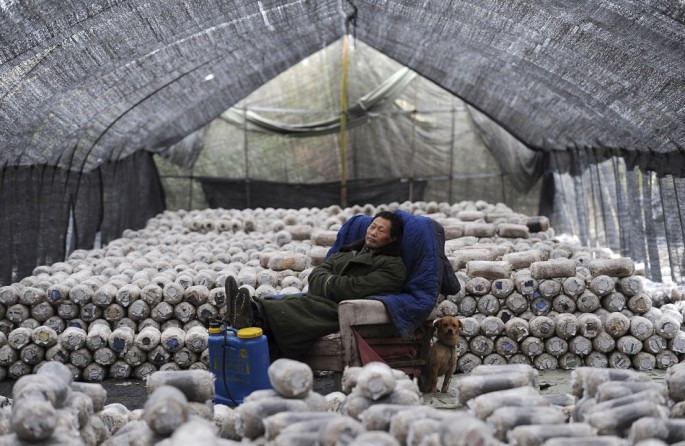A cooperative in Jinshan hopes to offer local mushroom farmers everything necessary to realize standardized, up-to-date methods for large-scale production. These include seeds, raw materials, technology, plastic houses and contracts.
Ding Wenfeng, co-founder of the LianZhong Professional Mushroom Cooperative, said that this will result in a unified selling price for the farmers.
LianZhong is now producing more than 3,000 tons of white button mushrooms indoor in Langxia Town of Shanghai's Jinshan District.
It uses a climate-controlled house resembling five-deck bunk beds that regulates the amount of light and moisture for mushrooms to grow.
The highly mechanized mushroom farm is also the biggest of its kind in Shanghai.
In the modern method that the cooperative utilizes, rice straw is used as bedding, while chicken and cattle manure are used as fertilizer.
The straw used becomes fermented and softened when the mushrooms grow. Upon harvesting of the mushrooms, the straw beneath can be sold to enrich the soil.
Langxia has a decades-long tradition of planting white button mushrooms, but most mushroom farmers in Langxia still use the old method, which is not only less environmentally sustainable but also less competitive in the marketplace.
LianZhong's ambition is not only to offer local mushroom farmers processed raw materials but also technology and contracts.
A research facility is under way in collaboration with the Shanghai Academy of Agricultural Sciences.
"We've decided to set up the facility to research and develop our own technology and equipment because those imported from overseas are too expensive," said Ding, co-founder of the mushroom cooperative.
Shanghai consumes around 30,000 tons of white button mushrooms annually and LianZhong seeks to provide more than 8,000 tons along with with contracted farmers in the future.




























